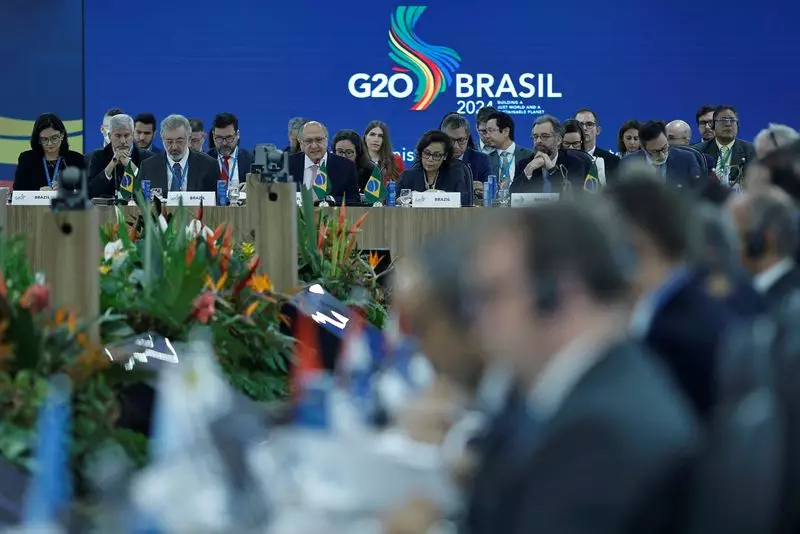In a significant move that could reshape international trade, ministers from the G20 nations convened in Brasilia, Brazil, to discuss policies that strengthen sustainable development while also enhancing the participation of women in global trade. The outcome of this one-day meeting, as expressed by Brazil’s Vice President and Trade Minister, Geraldo Alckmin, reflects a transformative ambition: to revitalize trade on a foundation that prioritizes inclusiveness and environmental stewardship.
Fostering Women’s Participation in Trade
For the first time, the G20 has explicitly acknowledged the crucial role of women in international trade. This momentous inclusion underscores a broader movement towards gender equity within global economic frameworks. Brazilian President Luiz Inacio Lula da Silva has been a vocal advocate for this initiative, ensuring that it was placed at the forefront of the G20 agenda. The commitment to empower women not only aligns with social equity goals but also recognizes the immense potential that diverse participation holds to drive economic growth.
A vital aspect of the G20 discussions was the urgent need for reform within the World Trade Organization (WTO). The ministers emphasized the importance of developing a “faster, more agile, and effective” conflict resolution mechanism. These reforms aim to create a more transparent and responsive multilateral trading system, which ensures all nations can compete fairly. The inclusion of this critical reform in the upcoming summit’s agenda marks a step towards addressing existing global trade challenges that have been exacerbated by systemic inefficiencies.
The discussion also brought to the forefront the impact of climate change on trade and investment. Brazil, which will host the COP30 climate talks, presented a call for the G20 to prioritize environmentally sustainable economic development. Highlighting the interconnection between trade practices and environmental responsibility, the ministers aim to direct investments towards projects that benefit the planet, thus ensuring that trade not only drives economic progress but also supports ecological sustainability.
Navigating Sensitive Global Issues
While the meeting was primarily focused on constructive collaboration, it was not devoid of tensions surrounding global conflicts, notably the ongoing situations in Russia, Ukraine, and Gaza. Though the atmosphere was predominantly cooperative, differences in opinion regarding whether these matters should fall within the G20’s purview were evident. The diplomats in attendance indicated that while compromises were made in the text drafting process, consensus around other proposals—particularly those concerning women’s participation—was ultimately reached.
The outcomes from this G20 meeting present an opportunity for redefining international economic strategies by foregrounding gender equity and sustainability. As the group prepares to present these proposals to the leaders at the forthcoming summit in Rio de Janeiro, the groundwork has been laid for a future where trade not only fuels economies but also champions inclusivity and environmental consciousness. The trajectory set by these discussions could very well pave the way for a more equitable and sustainable global trading environment, establishing a new norm in the world of international commerce.

